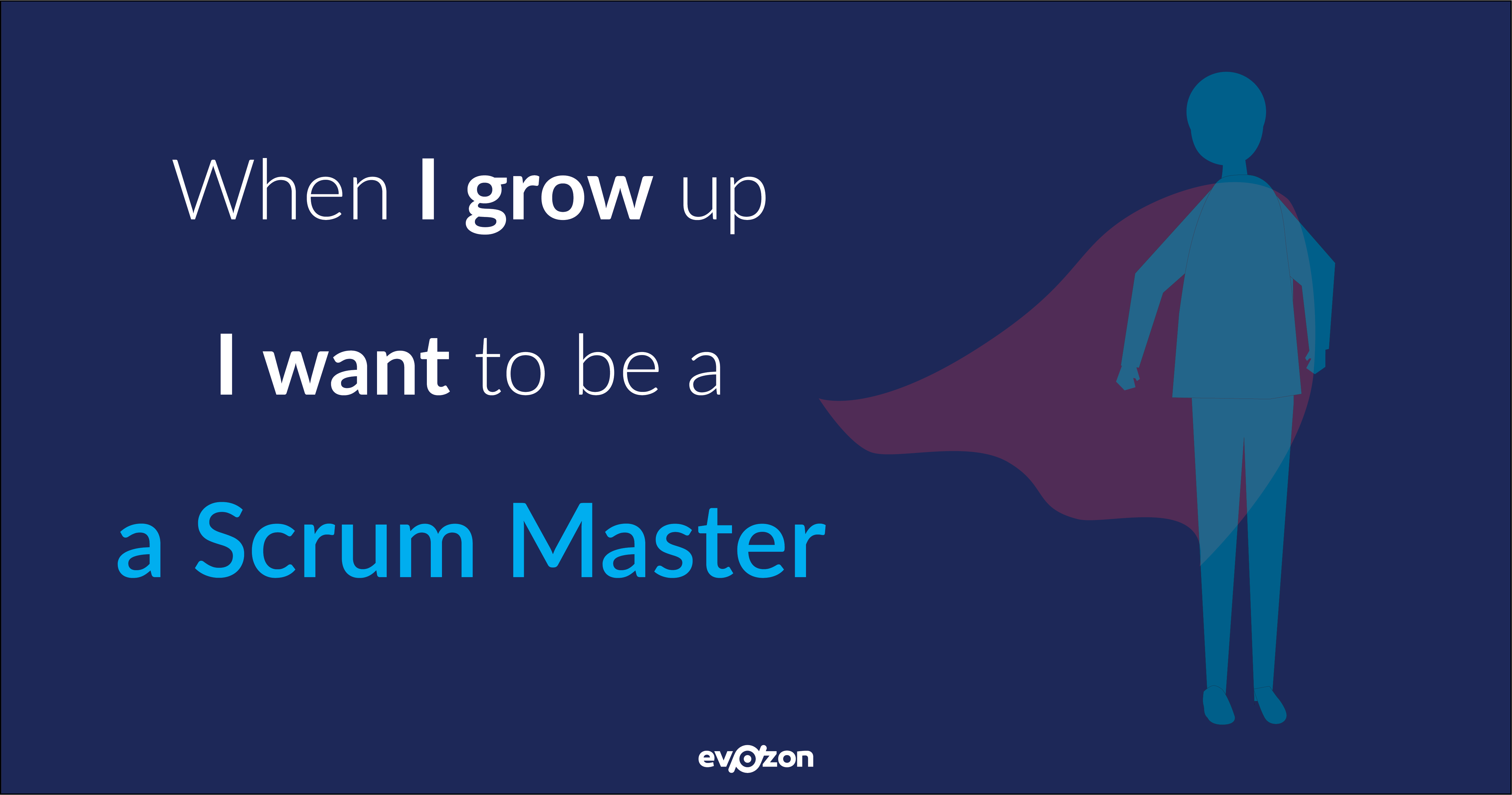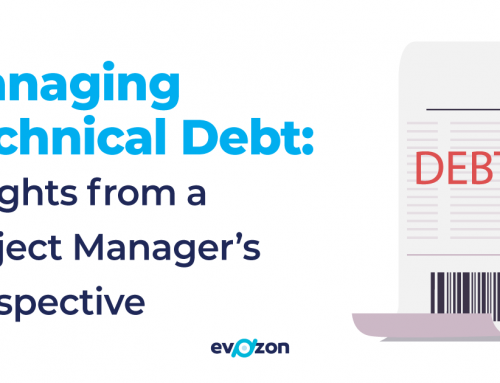Once upon a time, there was a kid who knew that life is an experiment and not a test. If we ask an adult about his career goals, we will get a predictable answer. Most of us say the classic: ‘I want to be very successful’. And then we try to live happily ever after, constantly aiming for that undefined goal which will never be enough. Let’s ask a kid what he wants to become when he grows up and we will be able to tell
what problems of our world the kid would like to solve. Let me state from the very beginning that this won’t be a story about how my biggest dream as a kid was to become a Scrum Master. When I was a kid, I went from detective to lawyer to ballerina to writer and to vet and at one point, I decided that I am going to become all of them, to avoid getting bored. Instead, let’s switch our mindset and think like kids for a
moment.
Let’s think like kids
I’ll hit you with the classic line – the answer to all our world’s dilemmas is in the mind of a child, we just need to ask the right questions. That is the reason why I believe it’s interesting to ask myself what would ten-year old me, who had those career goals, would say about my career now. I can certainly say that I don’t recall using words like: ‘agile’ or ‘scrum’ when I was that young, but hello, 2019! There are Agile parenting methods and that’s why I hope that deep in an agile-raised kid’s imagination lays the answer to the most difficult question I am asked way too often: ‘So what did you say you do all day’? (or the deeper versions of it: ‘Is it worth becoming a Scrum Master? Are you successful?’).
Agile
As I said, it’s 2019 and every project is agile, every company dreams of bragging about how agile development is the key to…everything and therefore, every team needs to be agile. And you absolutely must implement Scrum. It’s what all the cool kids do. And on top of that, the Scrum book says it’s very easy:
You take your team and you simply attach to it the most agile team member of them all: the facilitator, the planner, the coach, the organizer, the team protector…we are going to call him simply: The Scrum Master. How do you get him? Mix sugar, spice and everything nice plus a tiny drop of Agile Manifesto Potion of Principles (if you drop too much, you might get an overly-passionate one, but don’t worry, he will cut the excitement with time). He will take the principles, apply them in the team and boom… success will appear with confetti included. Oh, how I love the statement: ‘Scrum by the book’. It never works.
The Scrum Master Journey
Four years ago, I started the Scrum Master journey. I wasn’t created with sugar, spice and everything nice. I just drank a shot of Agile Manifesto Potion and suddenly started to feel Agile. There was no way back. After that, my entire life became Inspect & Adapt (also known in its very first stage of occurrence as: Panic & Survive).
Here’s a front-row seat to the show called What I thought Agile & Scrum was about and how I didn’t know what I was signing up for:
All set: here’s the team, here’s the goal, let’s go!
One sec. Let me get my GPS set so I can know where we’re going. What do you mean you don’t know the exact coordinates? How are we supposed to get there?
Can I get at least a map? Oh, ok…just a compass.
Team, we’re going north this Sprint. Prepare your jackets; it’s going to get cold.
Anything can be planned and controlled if you are organized
…and other funny things I used to tell myself. Well, you will be working with people and people are the most non-deterministic variables of this universe. You need to get used to expecting an approximate outcome and not an exact one and you need to get used to this level of uncertainty so much, that it will feel under control.
Being a servant leader will help you help the team.
The truth is that being a servant leader is simply not enough. If you limit yourself to asking what the team needs in order to progress with their work and you only solve their impediments, you are going to do this redundant work forever until you eventually get bored. You have to read people and be able to understand their behavior, so you can know if they will ask for help or if they are too scared to admit they need it. You need to identify how each person works and behaves in order to discover how the team will work together so you can maximize the delivered value.
Facilitator = you send meeting invites.
Yes, you oversee the team’s meeting schedule and you need to facilitate those meetings, but that doesn’t mean you send the invites to the team meetings, make sure people attend and your job is done. What if there is awkward silence during the meetings? What if they have an argument? If you do all the talking, is the team ever going to become self-organized? If you don’t talk at all, are you, as a team ever going to reach the Performing stage without any guidance? What if you remain stuck in Storming? What does it even mean to ‘help the team become self-organized’? Let’s start simpler: each meeting needs to bring some benefits to the team. They either accomplish something, improve something or learn something. If they see the value in the meetings, they will use the
opportunities to get involved.
Nobody touches your team!
You read it everywhere: As a Scrum Master you need to guard and protect your team. They need to focus on the team’s goals. Every team member needs to stay focused on his task. No, they cannot attend that meeting outside our sprint! No, they cannot help that other team! Aaand this is how you end up with a burned-out team and wonder after a couple of months why everyone is sooo bored. Nobody ever gets creative and nobody grows professionally if they don’t do diverse activities. So maybe, a defocus every now and then is not such a bad thing. You just need a balance between the team’s involvement in reaching the sprint goal and their involvement outside your sprints. Every disruption might turn into a winning situation. There’s a fancy word called ‘serendipity. Embrace that thing.
You are the guardian of the process and by guardian, I mean the controller.
We need to stick to exactly this way of doing things because this exact way is in the book/worked with my previous team and anything else we do differently is bad. Does it sound familiar? Because I hear this phrase daily. So, let me clarify this: just because it worked with a previous team, it doesn’t mean it will work now. Agile = adapting. No debates. It’s equally bad to enforce a previous approach, as it is to enforce the by-the-book principles. It might look good on paper, but your team might not feel good. Have a look at what went well with previous teams, take some lessons learned and use them in your next team. Be better with each team. Very important: the process is defined by the team. You just need to constantly make sure that their needs still harmonize with the principles and don’t harm the delivery.
Self-organized teams don’t need a Scrum Master.
Ok, my heart is broken now. While I recover from this enormous shock, let me try and help the team reach a state where they can feel empowered. Have you ever heard of Schrodinger’s cat? Well, you need to master that state of being. I know it will seem that you are working hard to make your job not needed anymore and you need to be happy while doing that, but you basically need to become not essential, but beneficial. Simple, right?
You need to keep the team happy, the stakeholders happy, your company happy…basically, everyone around you needs to be happy.
Oh, and bring world peace, while brushing your unicorn. Every time a discussion is started in a group of leaders, the role topic is eventually brought up and among the first things that are being stated is that as a leader, you need to make X happy (where X can be the Project Manager, the team, the Product Owner or any other key role in the project). I strongly disagree with this. It is not a Scrum Master’s responsibility to make anyone happy. When you are a Scrum Master, or any leader, your goal should be something measurable. From what I know, from decades ago, philosophers have been trying to agree on a definition of happiness and if they didn’t manage to put it into words, do you really believe that a humble Scrum Master will be able to achieve it for each person around him? Focus on helping each person grow, coach your team to become better, improve your way of working, be creative, help your team have fun. Just don’t lose your mind while doing it.
Final Thoughts
If you were waiting for an answer to the question: ‘Is it worth becoming a Scrum Master?’ or more specific: ‘How do you measure your success?’, I would say, grab a chair and have a seat with me while we wait together. Unfortunately, I am too grown up to explain with passion and sparkles in my eyes what I do and why I like it. The best definition of success for me is that I couldn’t see myself doing anything
else. For the magic and sparkles, ten-year-old me would tell you:
‘When I grow up, I wanna become that fancy Agile Leader called Scrum Master because it’s so diverse and I can never get bored. No situation is similar to another, I get to learn something new every day. It gives me a bit of the mystery a detective has to deal with and I can slake my thirst for investigations. I am involved in deep debates almost like a lawyer is when he has a case. I have to plan things step by step using specific and formalized set of steps that I sometimes feel I have to be as precise as a ballerina tiptoeing, but at the same time use every problem that needs a plan or a solution as an outlet for my creativity. Almost like a curious writer, I have to put all types of situations into words every day, so basically, my laptop is like a futuristic version of the vintage typewriter. And after 8 hours/day of doing this, I will go and work in my veterinary clinic’.




